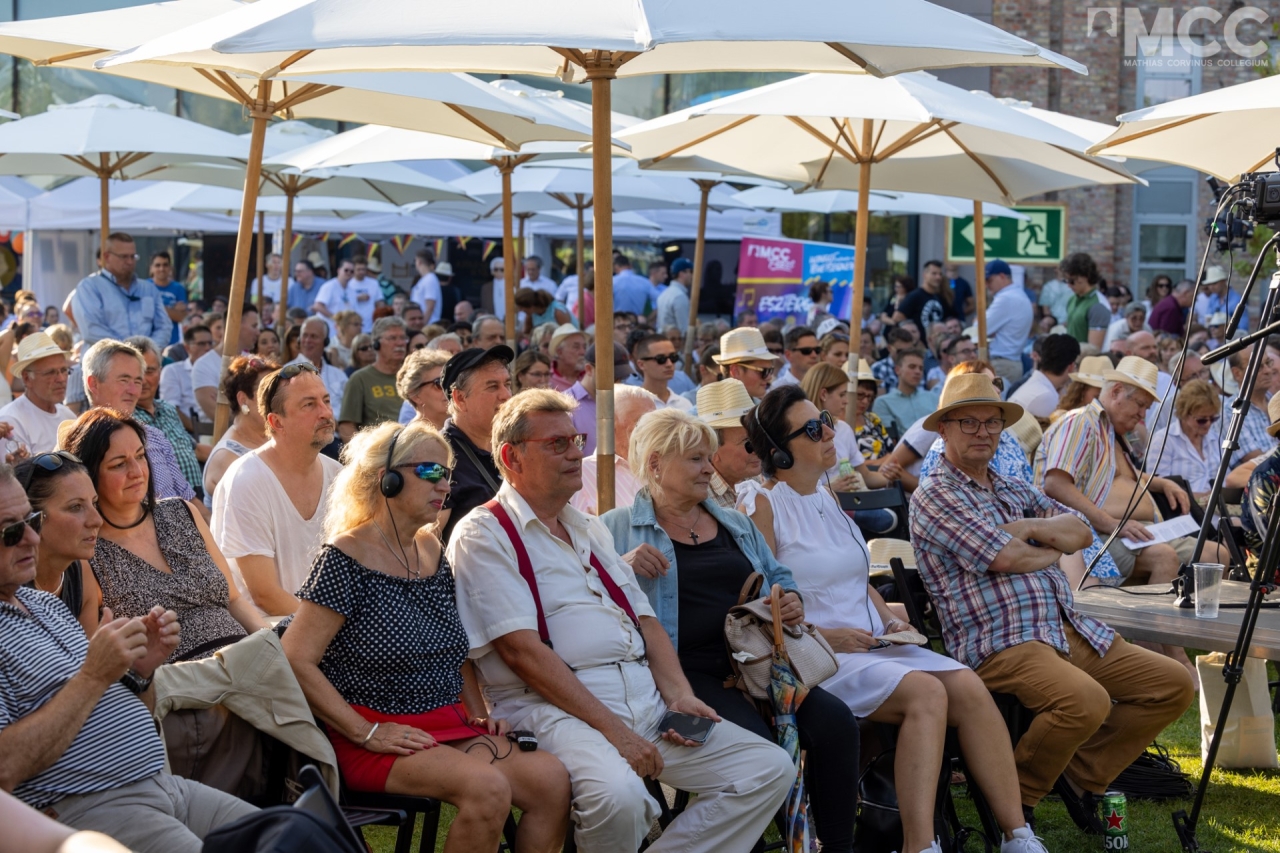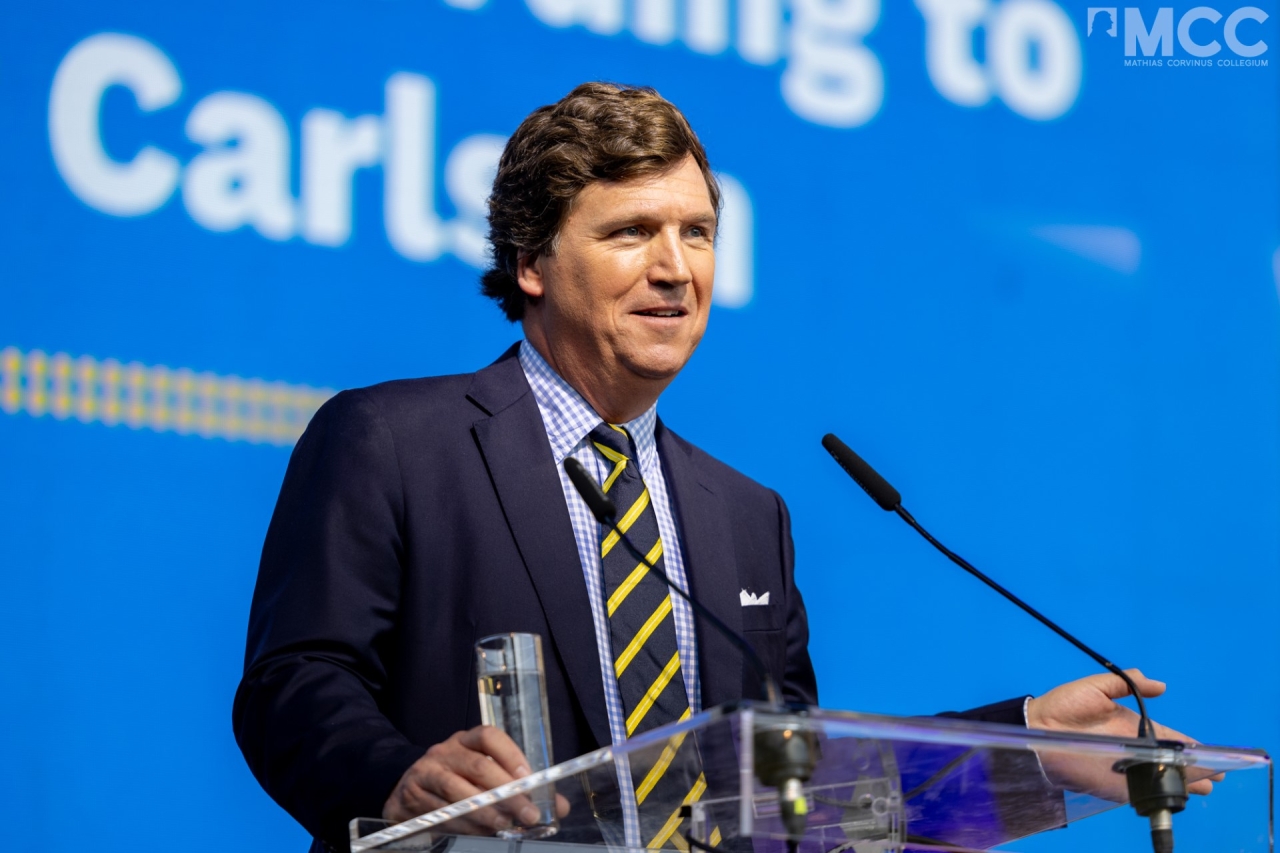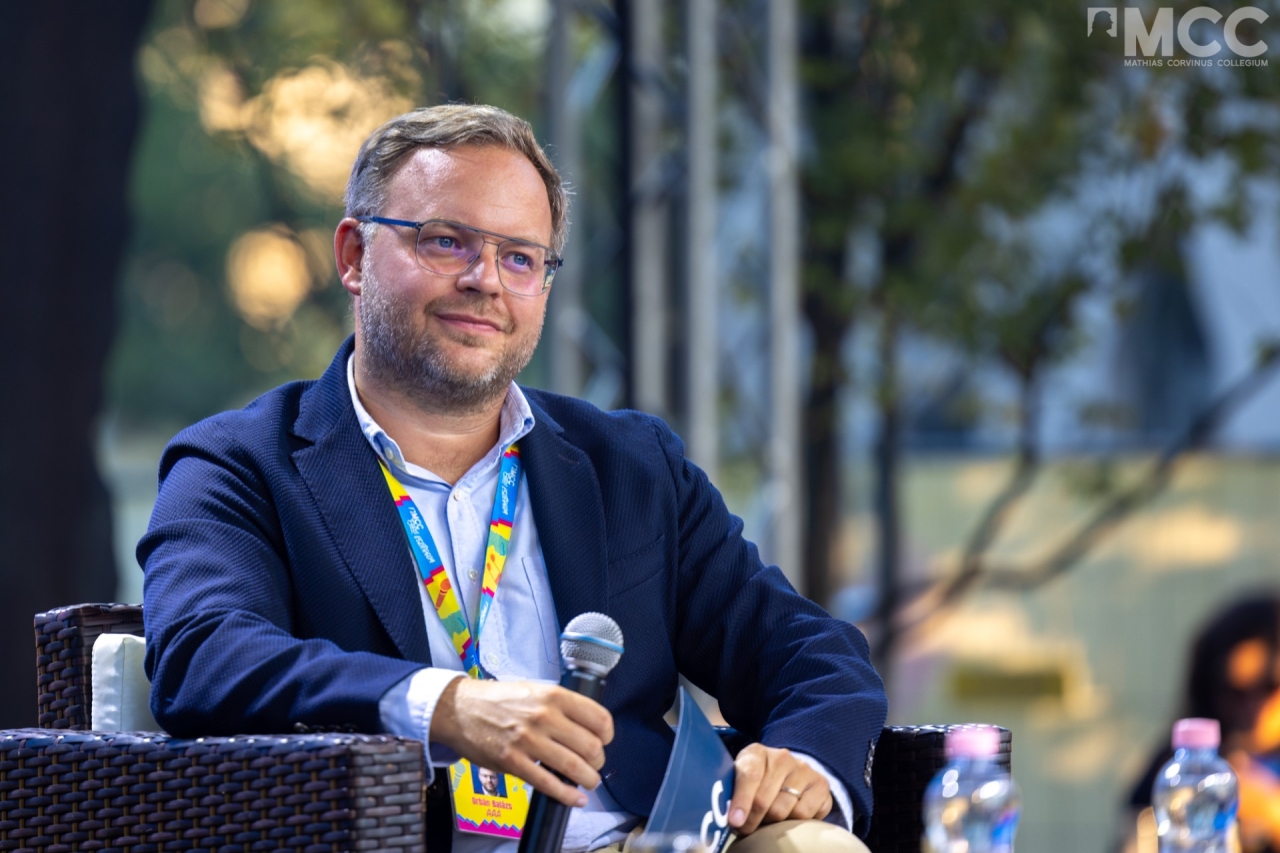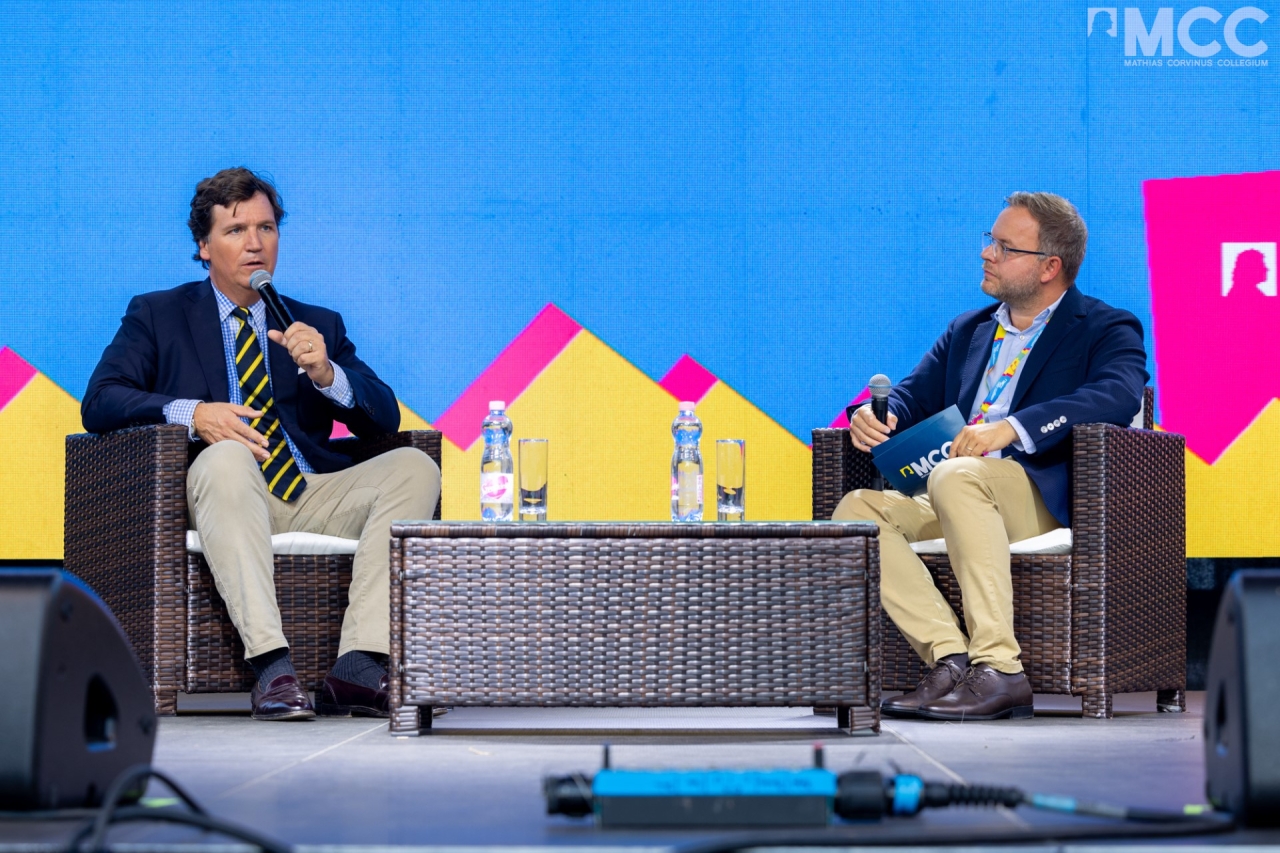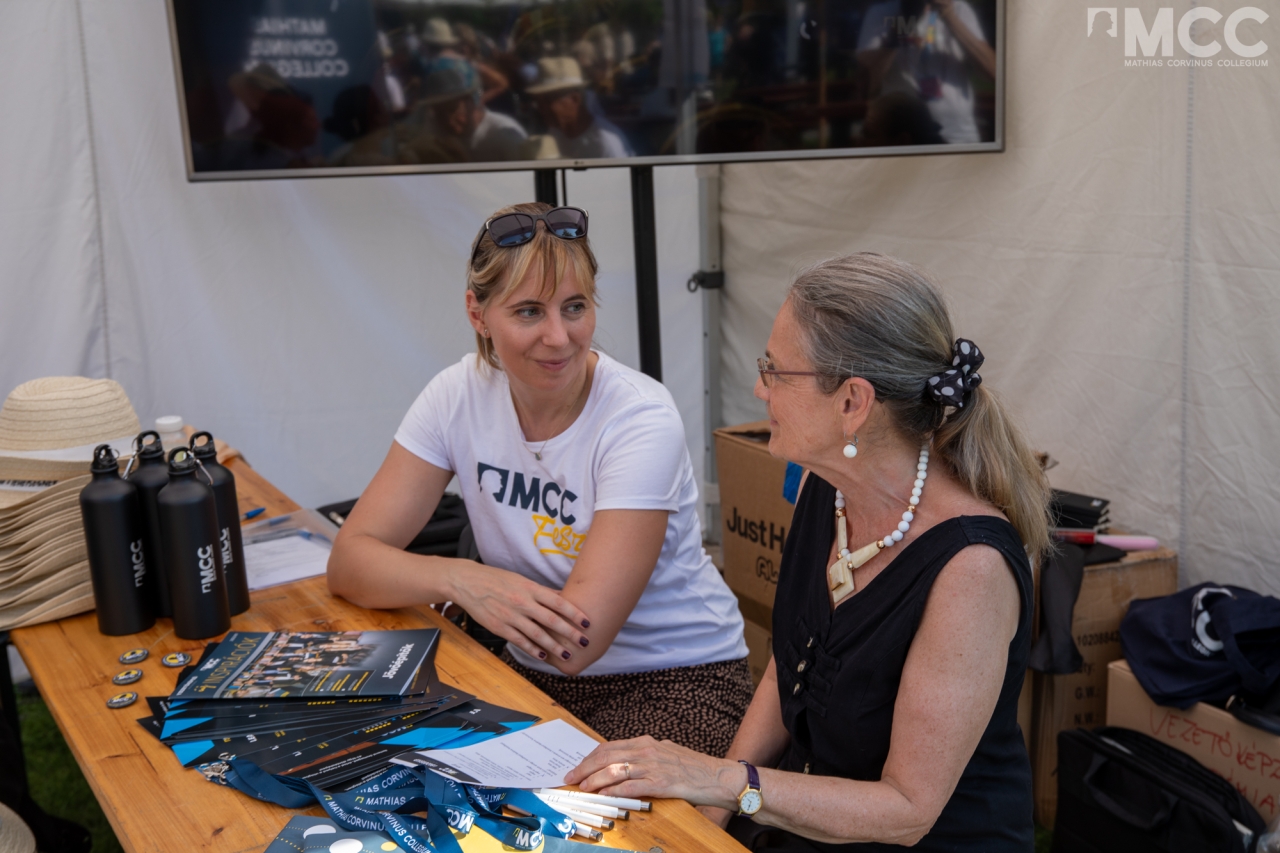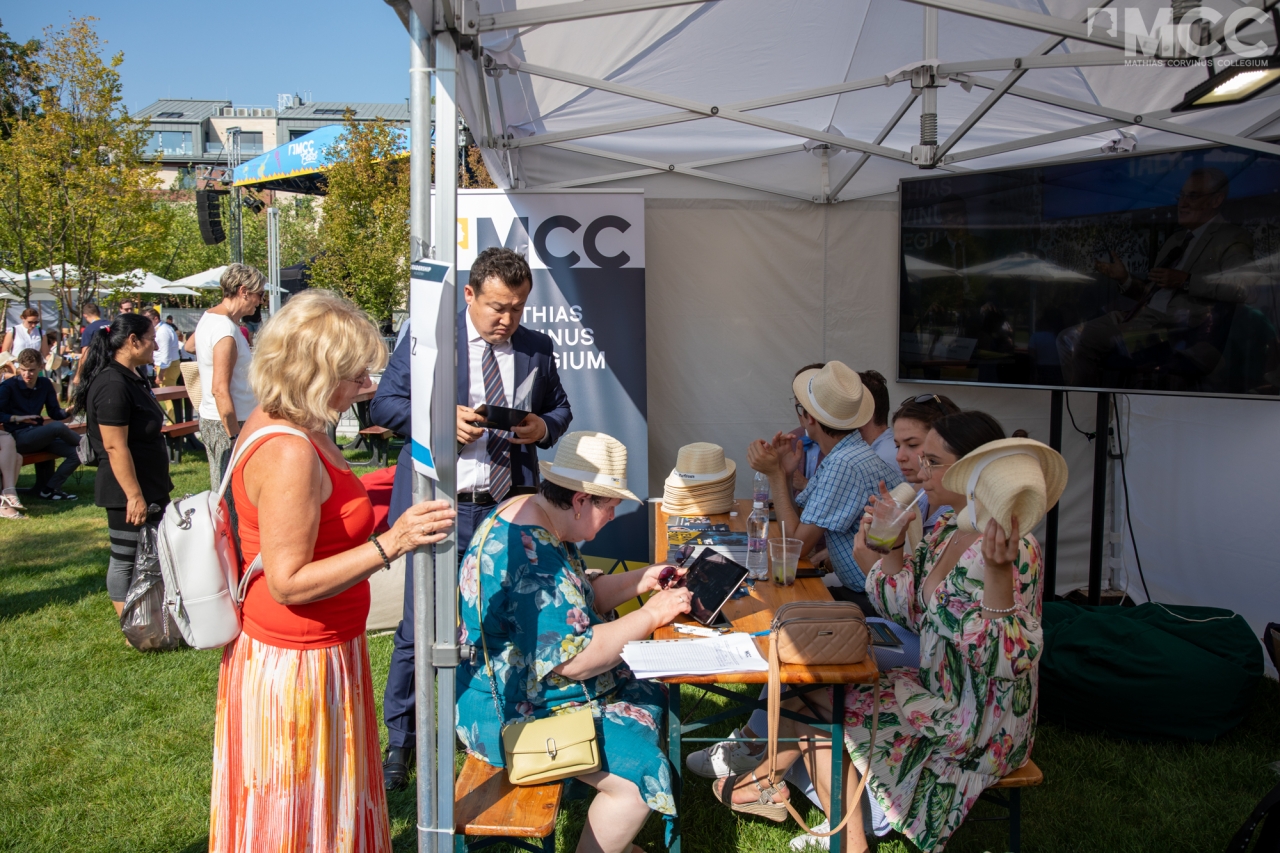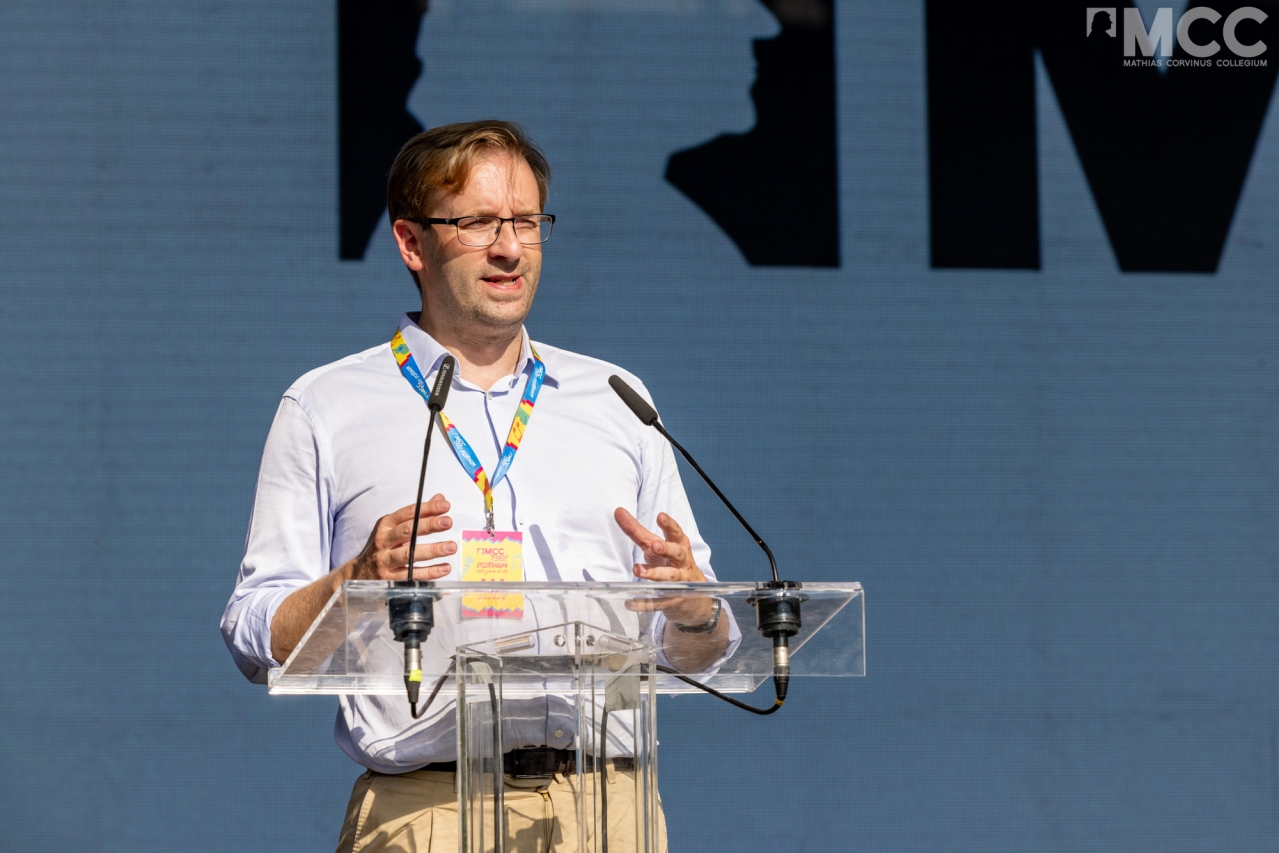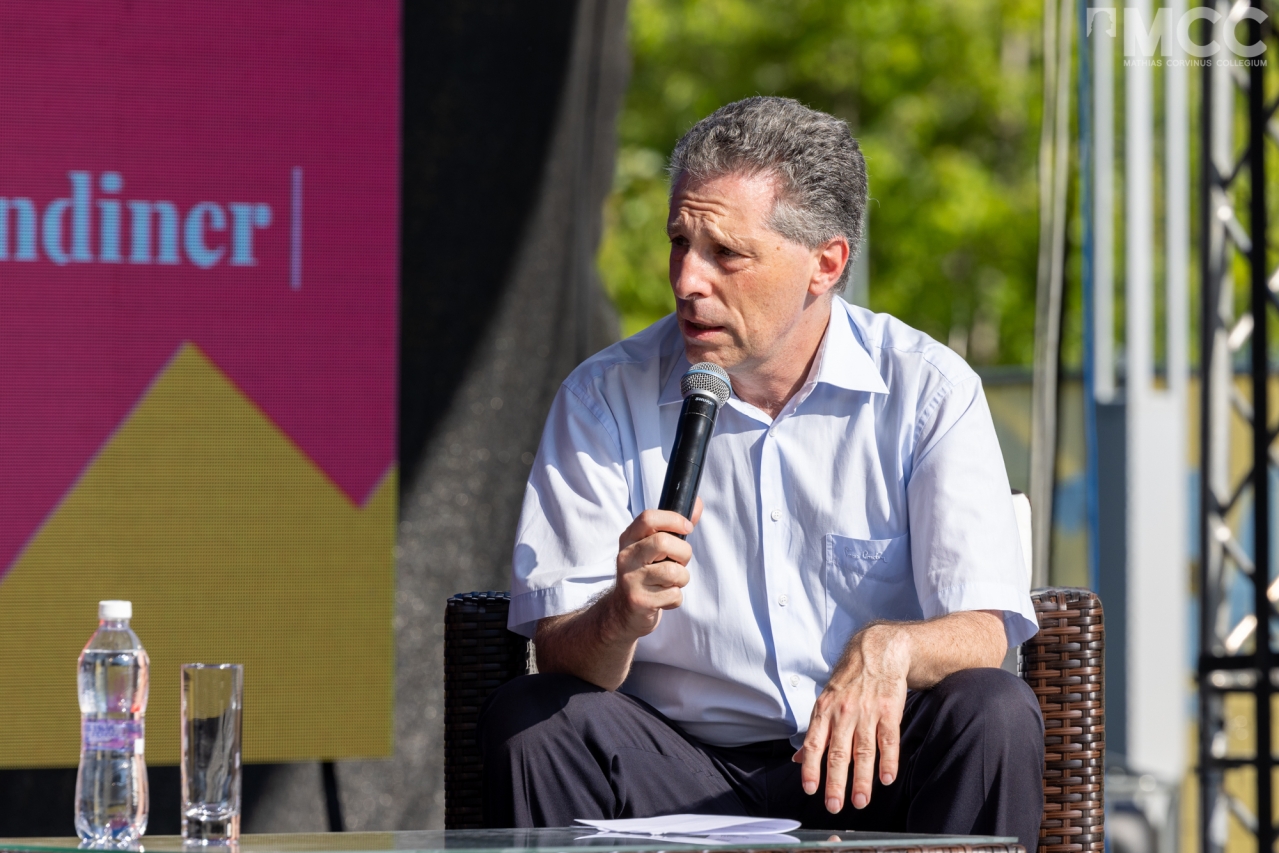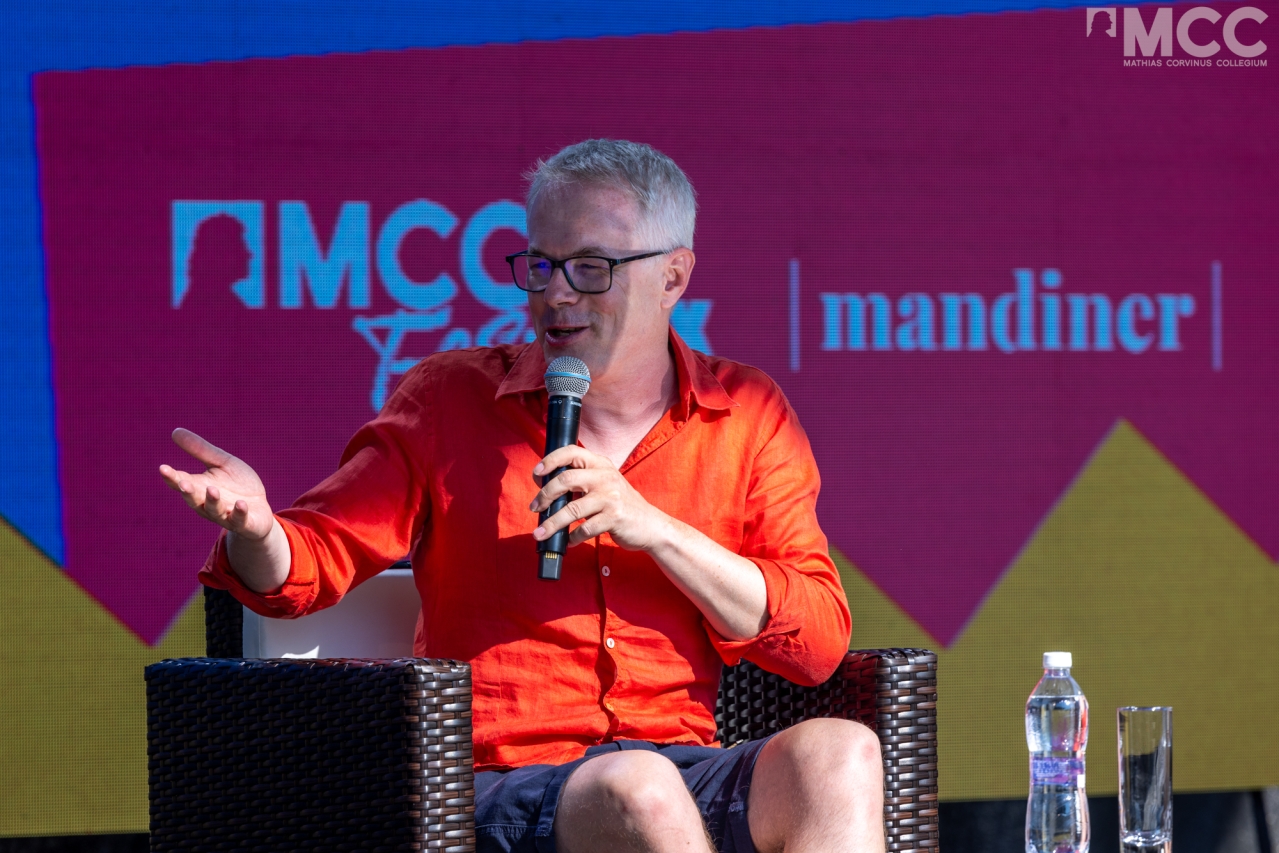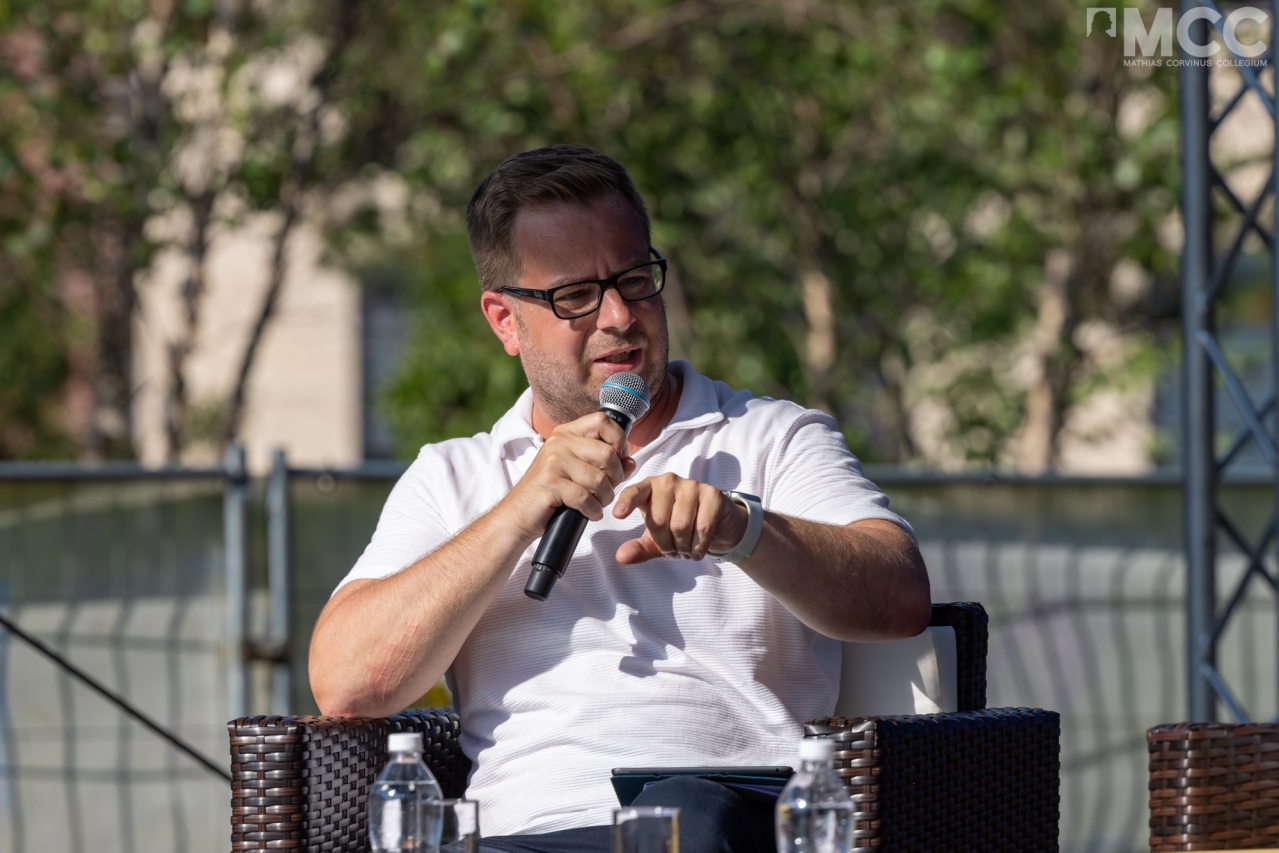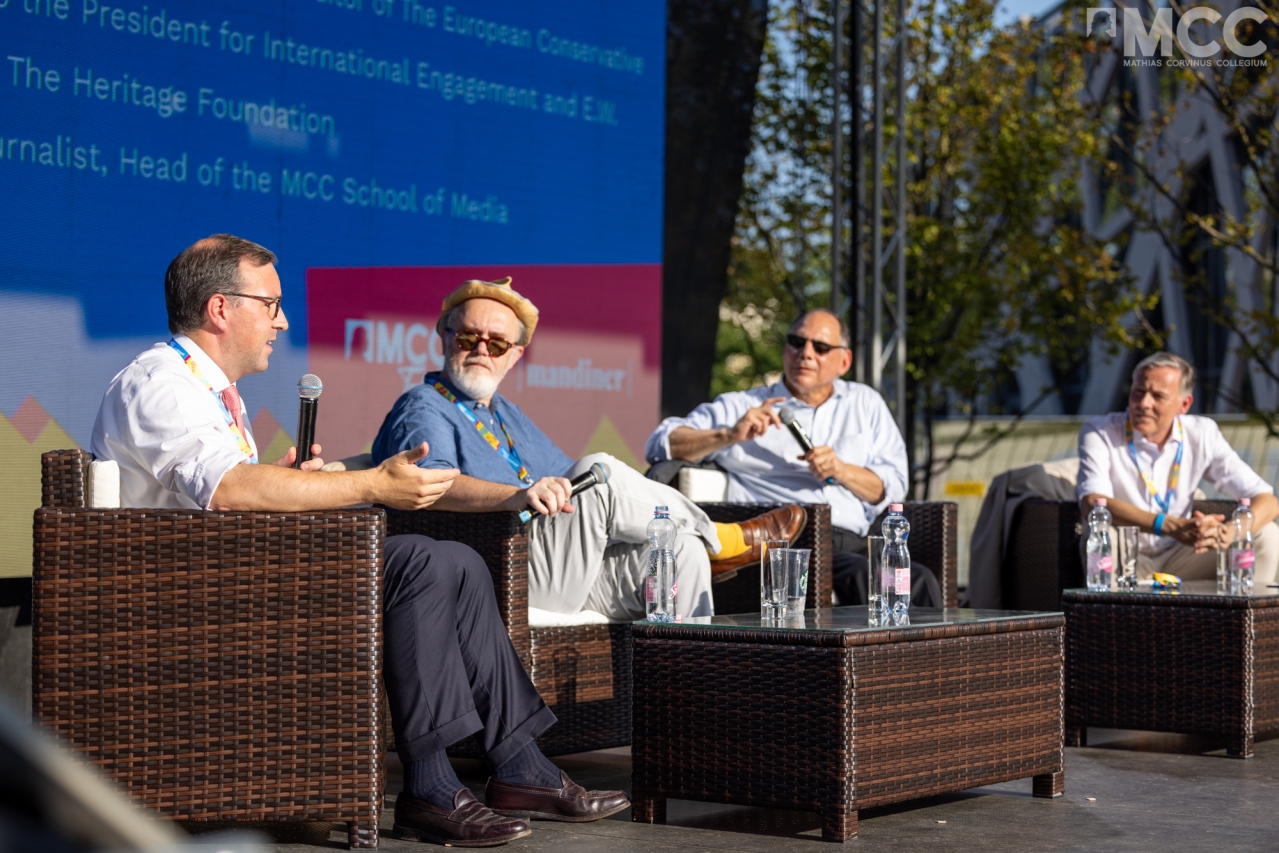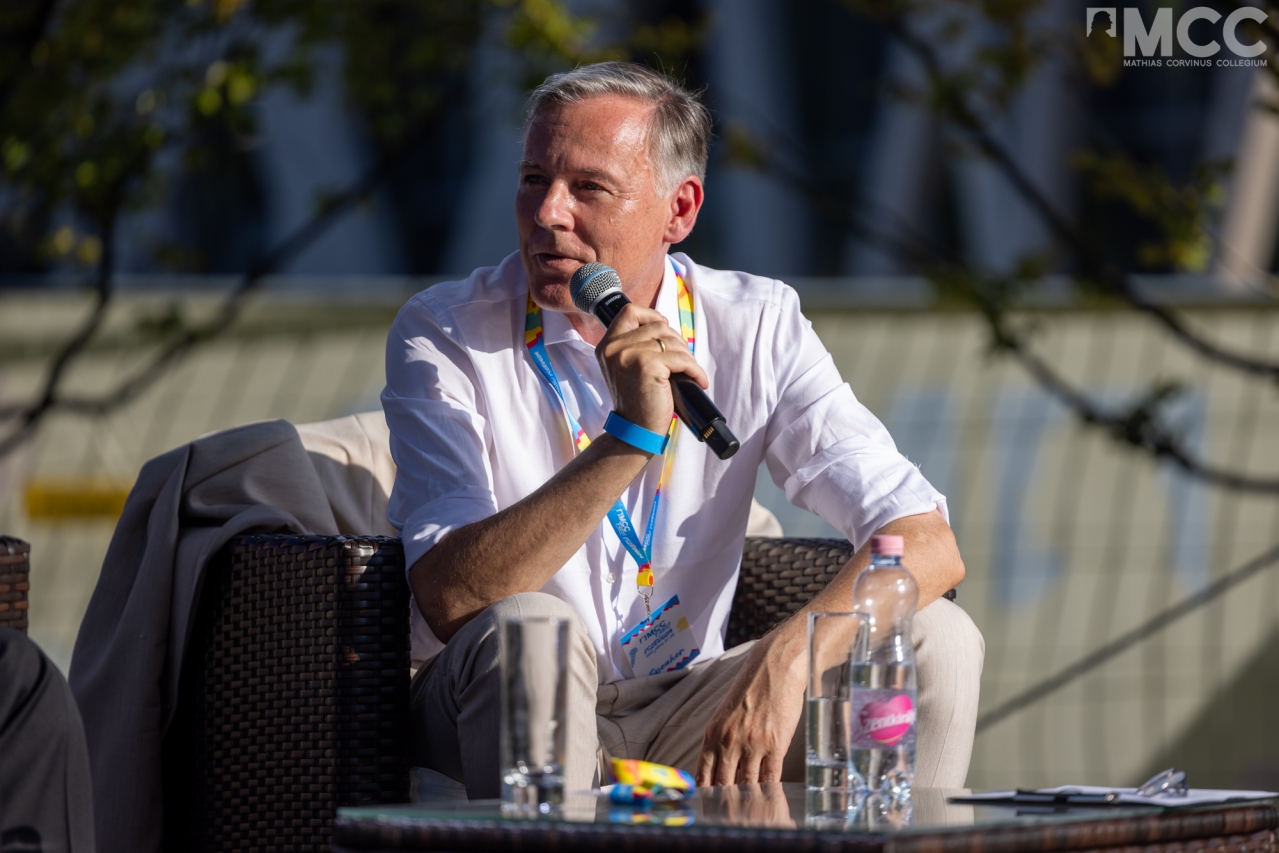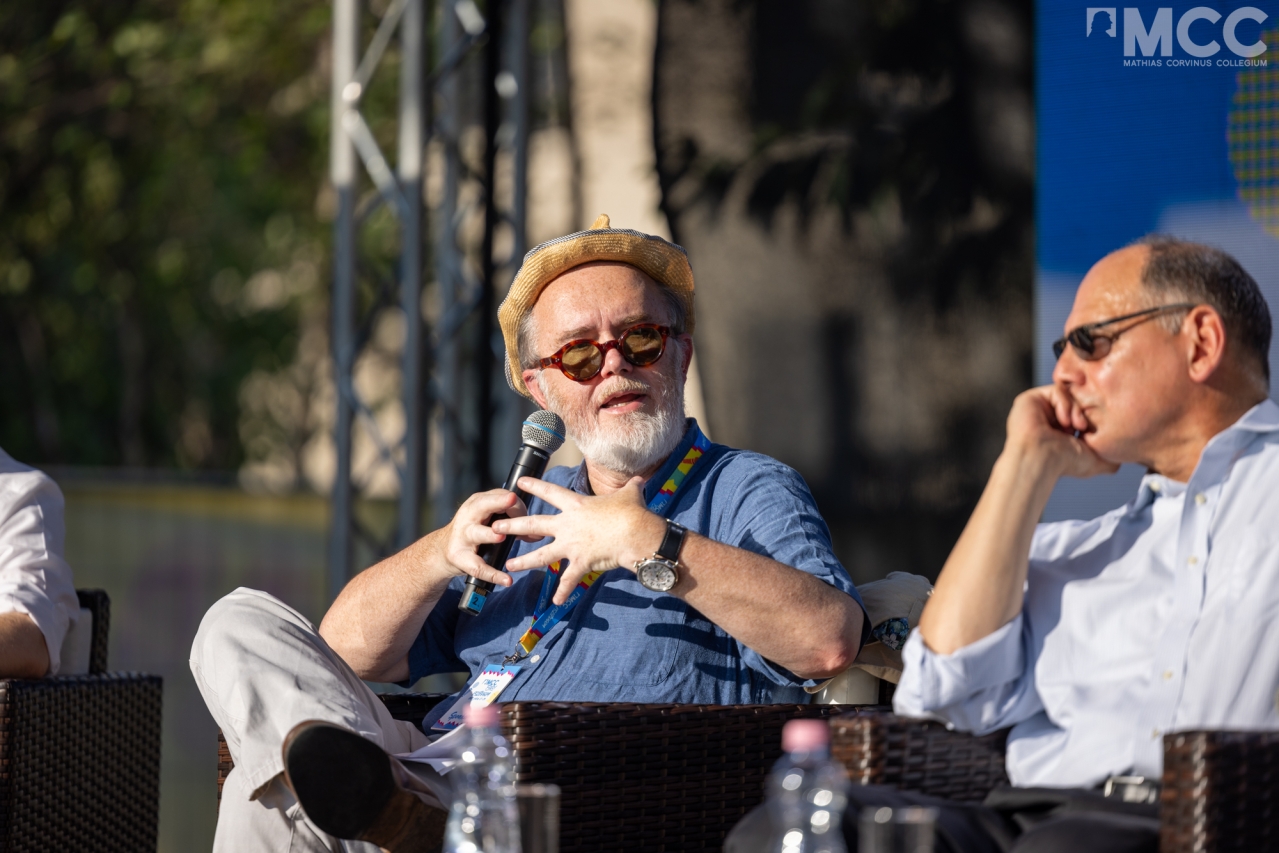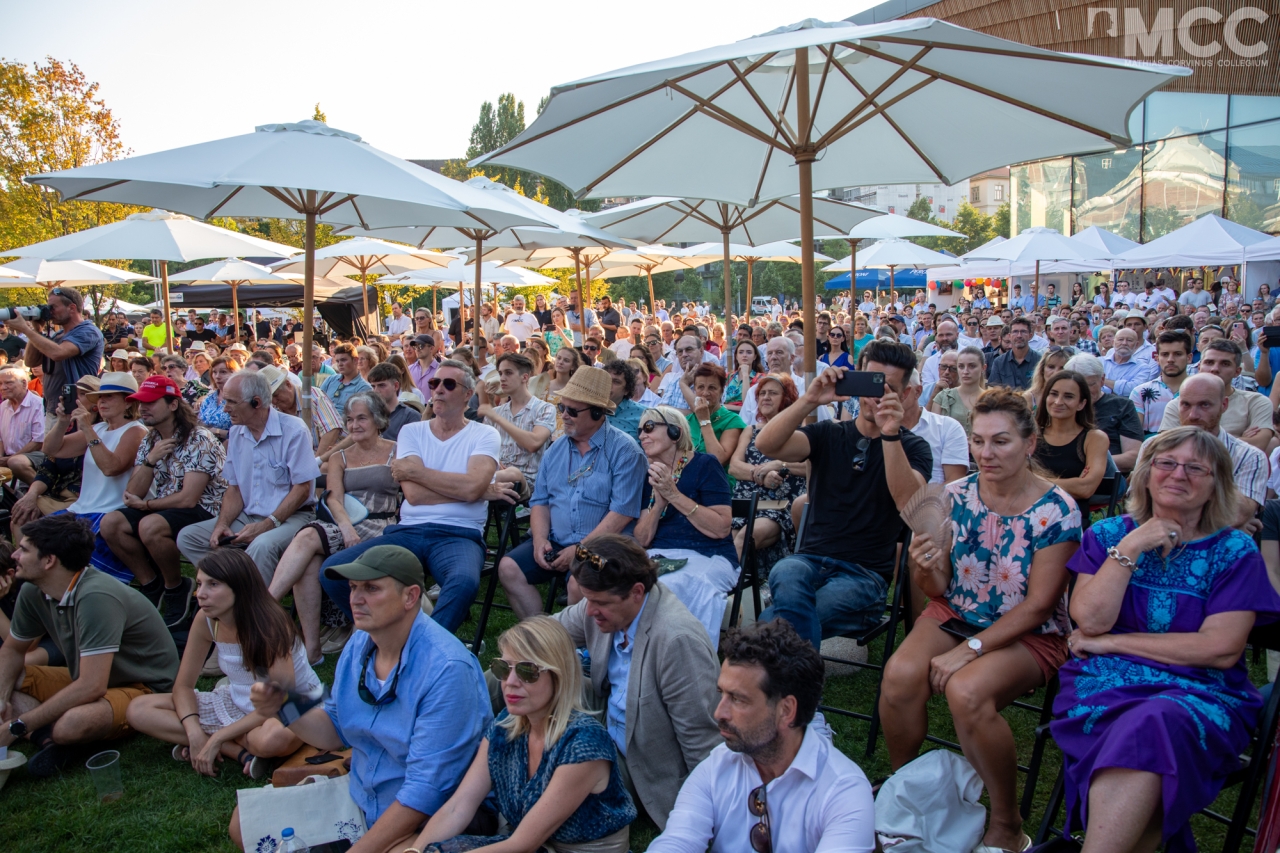Reading time: 5 minutes
On the 22nd of August, Tucker Carlson, the United States’ leading political commentator, returned to Hungary for another visit. As part of the post festival event, MCC Feszt After, held at Budapest’s Millenáris Park, Tucker Carlson gave a rousing speech where he discussed common issues facing Hungary and the United States. Similar to last month’s MCC Feszt, the speech was preceded by panel discussions on important and topical issues.
Sponsored by both Mathias Corvinus Collegium and Mandiner, MCC Feszt After attracted more than two thousand people, eager to hear Tucker Carlson, the panel discussions, and the featured concerts.
Good books help you decide what is true and what is not.
Tucker Carlson, former legendary conservative Fox News anchor and current host of his own new social media show, opened his remarks by pointing out that the normality of Hungary reminds him of the America he grew up in. Continuing, he warned the audience that Hungary is condemned by many for sticking to its Christian values. He then sharply criticized the US Ambassador in Budapest, David Pressman, and insisted that he does not serve the interests or represent the values of US citizens.
Moving on to the Russian-Ukrainian war, he noted that Western media is painting a false picture of the war, claiming that the Ukrainians are winning, while the war and subsequent arms race is only claiming more and more lives.
In the discussion that followed the speech, Balázs Orbán, Chairman of the Board of Trustees of MCC, asked what advice he would give to young people, including the large number of students attending the event. Carlson suggested that they should read hard copy books, preferably every day. He lamented that today’s schools and universities have become godless places, requiring students to turn to books but to help us decide what is true and what is not.
When asked what advice he would give today to his younger self, he replied:
"Don't be arrogant! Don't think you know everything, don't think you're right, and don't be so quick to judge. It's easy to judge, but when you can't even understand someone else’s marriage, how can you tell that you can understand someone else’s country? You have to admit that you cannot know everything, you cannot understand everything. This is a much wiser attitude than that of Biden and his administration, or Ambassador Pressman, who say, "I know what's right for you!"
Heated debate on Foreign Affairs at the first panel discussion
In the first panel discussion on the Changing World Order: Hungary's Place in the World, András Schiffer, a lawyer and former Member of Parliament, noted that historical events and turning points are better discussed from a distance of ten or twenty years, which is also true of the ongoing Russian-Ukrainian war.
András Pulai, head of Publicus Institute, added that the 24th of February 2022 would be seen as a turning point as it is the first time after the end of the Second World War that a European major power began a blatant war of aggression against a smaller country. He agreed with András Schiffer, however, that this is part of a larger process, the assessment of which will only be possible in retrospect.
According to Miklós Szánthó, director general of the Center for Fundamental Rights, the current conflict should have been kept local, just like the events in Crimea. He warned that global power shifts has begun, and the US is no longer the single dominant power in the world. Other major powers are present and will want to have a say about the world order that is currently taking shape. He concluded that it would be dangerous to completely cut Russia off from Europe, and that Hungary's position regarding the war serves both the Hungarian and European public interest better than the position of the West and Brussels.
“It is forbidden to forbid” - Foreign Experts on the Culture Wars
Gladden Pappin, president of the Hungarian Institute of International Affairs, portrayed the culture wars as a battle between culture and what he called anti-culture. Christianity and conservatives have always been concerned with maintaining normalcy and a functional society, with the left concerned with destroying it.
Rod Dreher, director of the Danube Institute's Network Project, added that the current culture wars could be traced back to the sexual revolution of the 1960s, which was based on the slogan "It is forbidden to forbid". The right incorrectly, he argued, thought that culture could sustain itself without any government support, but that this proved to be a false and unsustainable assumption.
James Jay Carafano, Senior Advisor at the Heritage Foundation, began by insisting conservatives must answer two questions today: Who are we? and What do we believe in? He continued by explaining the role of political parties has changed, with the left representing the narrow interests of the elite, while conservatism has been embraced by everyday people who want change.
The three experts agreed that figures such as Christopher Rufo or Tucker Carlson have a unique power, and in many cases, they can make a bigger political impact than the US Congress. All praised Hungary, highlighting the role of MCC in giving a voice to conservatives, which is sorely missing in the United States today.
The discussions were followed by atmospheric summer concerts by MCC student András Nagy Csomor and his band, and the well-known Parno Graszt band.
